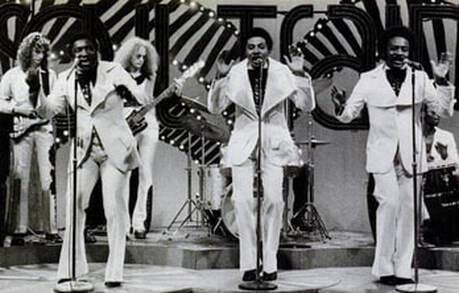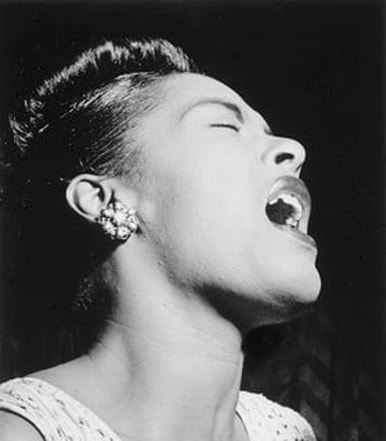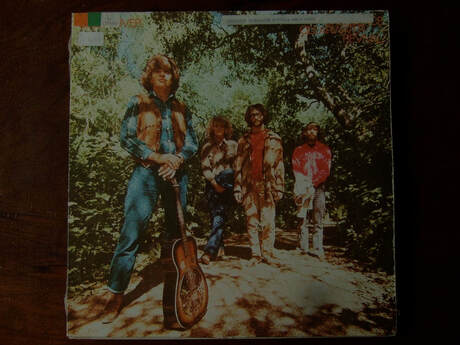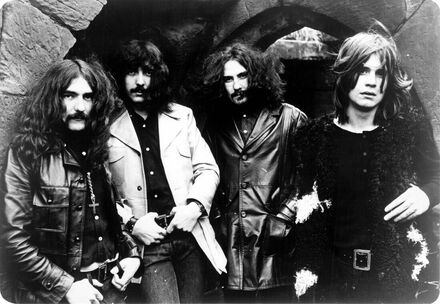Feature of the Month
Message in Our Music by the O'Jays
By Brett Hammerman
Music has power. The accessibility of it, as well as its longstanding cultural presence both within America and beyond its borders, allow it to drive social change. In their 1976 hit song “Message in our Music,” The O'Jays sing:
“Cause we gonna talk about all the things
That’s been goin’ down…
We got a message in our music
There’s a message in our song
So understand while you dance”
Music’s ability to carry messages gives music inherent power. The O’Jays use music to reflect on current events -- or what has “been goin’ down” -- through their music. Their song compels you to reflect on the state of our world, singing: “Things ain’t like they’re supposed to be.” The O’Jays call out broad societal issues to raise awareness and spark activism. Music, per the lyrics in their song, is their mode of “communication.” However, the O’Jays communicate a message in style, making listeners dance as the lyrics sink in; they speak to the transcendence of hearing songs. They move you (both physically and emotionally) but concurrently force you to think critically about complex issues. More than 40 years later, as our nation still wrestles with the impact of racism and the fight for Black Lives, the O’Jays song forecasts the ways music will continue to bring awareness to not just racism, but other social issues. The resonance of the song today points not only to the issues America must solve, but also speaks to music’s enduring ability to stay relevant to current discourse as a timeless capstone of our national memory.
As an artist myself, I’m struck by the song’s ability to bluntly and concisely articulate the purpose of a song. Songwriters use their talent to draw attention to key social issues that have been disregarded and left out of our collective national or global consciousness. But they also meaningfully interact with individual stories and experiences. I was clearly not alive in 1976, but that the O’Jays song can resonate so powerfully says volumes about its translatability beyond any singular moment. Often, we don’t overanalyze or unpack the lyrics of the songs that we consume. But, maybe we should. There are thousands of artists around their worlds with stories to tell, and as a society, we should begin to hear them, and we can do this by disseminating the message in their music.
By Brett Hammerman
Music has power. The accessibility of it, as well as its longstanding cultural presence both within America and beyond its borders, allow it to drive social change. In their 1976 hit song “Message in our Music,” The O'Jays sing:
“Cause we gonna talk about all the things
That’s been goin’ down…
We got a message in our music
There’s a message in our song
So understand while you dance”
Music’s ability to carry messages gives music inherent power. The O’Jays use music to reflect on current events -- or what has “been goin’ down” -- through their music. Their song compels you to reflect on the state of our world, singing: “Things ain’t like they’re supposed to be.” The O’Jays call out broad societal issues to raise awareness and spark activism. Music, per the lyrics in their song, is their mode of “communication.” However, the O’Jays communicate a message in style, making listeners dance as the lyrics sink in; they speak to the transcendence of hearing songs. They move you (both physically and emotionally) but concurrently force you to think critically about complex issues. More than 40 years later, as our nation still wrestles with the impact of racism and the fight for Black Lives, the O’Jays song forecasts the ways music will continue to bring awareness to not just racism, but other social issues. The resonance of the song today points not only to the issues America must solve, but also speaks to music’s enduring ability to stay relevant to current discourse as a timeless capstone of our national memory.
As an artist myself, I’m struck by the song’s ability to bluntly and concisely articulate the purpose of a song. Songwriters use their talent to draw attention to key social issues that have been disregarded and left out of our collective national or global consciousness. But they also meaningfully interact with individual stories and experiences. I was clearly not alive in 1976, but that the O’Jays song can resonate so powerfully says volumes about its translatability beyond any singular moment. Often, we don’t overanalyze or unpack the lyrics of the songs that we consume. But, maybe we should. There are thousands of artists around their worlds with stories to tell, and as a society, we should begin to hear them, and we can do this by disseminating the message in their music.
Post 1

Message in our Music by The O’Jays
By Brett Hammerman
Music has power. The accessibility of it, as well as its longstanding cultural presence both within America and beyond its borders, allow it to drive social change. In their 1976 hit song “Message in our Music,” The O'Jays sing:
“Cause we gonna talk about all the things
That’s been goin’ down…
We got a message in our music
There’s a message in our song
So understand while you dance”
Music’s ability to carry messages gives music inherent power. The O’Jays use music to reflect on current events -- or what has “been goin’ down” -- through their music. Their song compels you to reflect on the state of our world, singing: “Things ain’t like they’re supposed to be.” The O’Jays call out broad societal issues to raise awareness and spark activism. Music, per the lyrics in their song, is their mode of “communication.” However, the O’Jays communicate a message in style, making listeners dance as the lyrics sink in; they speak to the transcendence of hearing songs. They move you (both physically and emotionally) but concurrently force you to think critically about complex issues. More than 40 years later, as our nation still wrestles with the impact of racism and the fight for Black Lives, the O’Jays song forecasts the ways music will continue to bring awareness to not just racism, but other social issues. The resonance of the song today points not only to the issues America must solve, but also speaks to music’s enduring ability to stay relevant to current discourse as a timeless capstone of our national memory.
As an artist myself, I’m struck by the song’s ability to bluntly and concisely articulate the purpose of a song. Songwriters use their talent to draw attention to key social issues that have been disregarded and left out of our collective national or global consciousness. But they also meaningfully interact with individual stories and experiences. I was clearly not alive in 1976, but that the O’Jays song can resonate so powerfully says volumes about its translatability beyond any singular moment. Often, we don’t overanalyze or unpack the lyrics of the songs that we consume. But, maybe we should. There are thousands of artists around their worlds with stories to tell, and as a society, we should begin to hear them, and we can do this by disseminating the message in their music.
By Brett Hammerman
Music has power. The accessibility of it, as well as its longstanding cultural presence both within America and beyond its borders, allow it to drive social change. In their 1976 hit song “Message in our Music,” The O'Jays sing:
“Cause we gonna talk about all the things
That’s been goin’ down…
We got a message in our music
There’s a message in our song
So understand while you dance”
Music’s ability to carry messages gives music inherent power. The O’Jays use music to reflect on current events -- or what has “been goin’ down” -- through their music. Their song compels you to reflect on the state of our world, singing: “Things ain’t like they’re supposed to be.” The O’Jays call out broad societal issues to raise awareness and spark activism. Music, per the lyrics in their song, is their mode of “communication.” However, the O’Jays communicate a message in style, making listeners dance as the lyrics sink in; they speak to the transcendence of hearing songs. They move you (both physically and emotionally) but concurrently force you to think critically about complex issues. More than 40 years later, as our nation still wrestles with the impact of racism and the fight for Black Lives, the O’Jays song forecasts the ways music will continue to bring awareness to not just racism, but other social issues. The resonance of the song today points not only to the issues America must solve, but also speaks to music’s enduring ability to stay relevant to current discourse as a timeless capstone of our national memory.
As an artist myself, I’m struck by the song’s ability to bluntly and concisely articulate the purpose of a song. Songwriters use their talent to draw attention to key social issues that have been disregarded and left out of our collective national or global consciousness. But they also meaningfully interact with individual stories and experiences. I was clearly not alive in 1976, but that the O’Jays song can resonate so powerfully says volumes about its translatability beyond any singular moment. Often, we don’t overanalyze or unpack the lyrics of the songs that we consume. But, maybe we should. There are thousands of artists around their worlds with stories to tell, and as a society, we should begin to hear them, and we can do this by disseminating the message in their music.
Post 11

Strange Fruit by Billie Holiday
By Brett Hammerman
I get chills whenever I hear the first chord of Billie Holiday’s “Strange Fruits.” It’s ominous key -- B-flat minor, to be exact -- and her emotive voice commands the listener's attention. The song, released in 1939, was written to protest the lynching of black men in the South. She cries out: “Southern trees bear a strange fruit/Blood on the leaves and blood at the root/Black bodies swinging in the southern breeze” in the very first verse. Immediately, the lyrics depict the horrifying, bloody scene of a lynching. The songs lyrics were inspired by a real case of lyhnching in the South, where images literally depicted “Black bodies swinging in the southern breeze.” The shocking image paired with the “Strange Fruit'' lyrics tell listeners a story of the most heinous racist act, sparing no details, no matter how gruesome.
An essay or a speech couldn’t evoke the same sense of devastation, anger, and frustration as Holiday’s song. To begin with, the melancholy, long-lasting introduction sets the tone for the lyrics to come. Additionally, the long pauses between Holiday’s singing allow the listener to consider the words Holiday had just sung. The lyrics paint a raw image of the event that gave rise to the song, and listeners can begin to “see” what happened through each lyric -- like a puzzle, each line adds a new component to the picture, from the picturesque “Pastoral scene of the gallant South” to the contrasting “smell of burning flesh.” Furthermore, her constantly changing melodies and powerful vocals alone alarm listeners to hear and process the lyrics.
Nowadays, the song is celebrated as a strong, timeless protest song. However, when it was first released, the song made Holiday a “go-to” target for racist acts, and at times she even feared her safety while performing it. She risked her own security in order to send a message to the world that lynchings must stop and that we all must act to dismantle racism in society. In this sense, Holiday is a perfect example of an artist using their voice and platform to raise awareness of inequalities and call listeners to action. When a person hears “Strange Fruit” today, one might connect the song’s topic -- the lynchings of Holiday’s time -- to the systemic racism we see today, and the continual murder of black Americans. The song protests injustice, and we can return to this song to continue to protest the status quo.
By Brett Hammerman
I get chills whenever I hear the first chord of Billie Holiday’s “Strange Fruits.” It’s ominous key -- B-flat minor, to be exact -- and her emotive voice commands the listener's attention. The song, released in 1939, was written to protest the lynching of black men in the South. She cries out: “Southern trees bear a strange fruit/Blood on the leaves and blood at the root/Black bodies swinging in the southern breeze” in the very first verse. Immediately, the lyrics depict the horrifying, bloody scene of a lynching. The songs lyrics were inspired by a real case of lyhnching in the South, where images literally depicted “Black bodies swinging in the southern breeze.” The shocking image paired with the “Strange Fruit'' lyrics tell listeners a story of the most heinous racist act, sparing no details, no matter how gruesome.
An essay or a speech couldn’t evoke the same sense of devastation, anger, and frustration as Holiday’s song. To begin with, the melancholy, long-lasting introduction sets the tone for the lyrics to come. Additionally, the long pauses between Holiday’s singing allow the listener to consider the words Holiday had just sung. The lyrics paint a raw image of the event that gave rise to the song, and listeners can begin to “see” what happened through each lyric -- like a puzzle, each line adds a new component to the picture, from the picturesque “Pastoral scene of the gallant South” to the contrasting “smell of burning flesh.” Furthermore, her constantly changing melodies and powerful vocals alone alarm listeners to hear and process the lyrics.
Nowadays, the song is celebrated as a strong, timeless protest song. However, when it was first released, the song made Holiday a “go-to” target for racist acts, and at times she even feared her safety while performing it. She risked her own security in order to send a message to the world that lynchings must stop and that we all must act to dismantle racism in society. In this sense, Holiday is a perfect example of an artist using their voice and platform to raise awareness of inequalities and call listeners to action. When a person hears “Strange Fruit” today, one might connect the song’s topic -- the lynchings of Holiday’s time -- to the systemic racism we see today, and the continual murder of black Americans. The song protests injustice, and we can return to this song to continue to protest the status quo.
Post 111

Fortunate Son by Creedence Clearwater Revival
By Brett Hammerman
In September 1969, right at the peak of the Vietnam War, Creedence Clearwater Revival released his single “Fortunate Son.” In the song, he sings about the inequity of wartime. To be a “fortunate son,” is to be related to someone with great status. “I ain’t no senator’s son,” or, “I ain’t no millionaire’s son,” he explains. During the Vietnam War, many wealthy young Americans dodged the draft because of their connections, which the others -- less “fortunate” -- were binded by law to go to war for a controversial cause. The song’s genius stems from the fact that it uses the Vietnam War as a gateway to critiquing America’s social hierarchy. Why is that “folks [that] are born silver spoon in hand” don’t have to go to war? Isn’t everyone equal? These rhetorical questions guide the listener through the 2 minute song, and perhaps, continue to plague their minds after.
The song's popularity demonstrates its wide reach. If you listen to the song, you’re compelled to think about the problems in the draft system, the idea that those that have power don’t fight on the battlefield, and the larger inequalities in America. There are many ways for listeners to have taken action -- to begin with, the Vietnam War polarized American society and caused widespread protests to end the violence overseas. The song fed off of this unique historical moment, and used it to catalyse a newfound consciousness and desire to reform our systems so that when it comes to war, all are equal; we should work to construct a country devoid of “unfortunate sons.”
One interesting component to the song is its upbeat tone: it’s a true rock and roll song. A question that comes to my mind is: how can Creedence Clearwater Revival expose the flaws within our systems and raise awareness of privilege while singing a song that stripped of its lyrics would appear euphoric? Perhaps the song’s catchiness draws listeners in, gets more radio airplay, and thus more people hear the song. Or, maybe it’s just because in music, the message of the song doesn’t always need to match the tone. Hearing the words themselves is powerful enough. This relates to the O'Jays’ “Message in our Music,” where they assert that while music carries weight, you might as well dance to it!
By Brett Hammerman
In September 1969, right at the peak of the Vietnam War, Creedence Clearwater Revival released his single “Fortunate Son.” In the song, he sings about the inequity of wartime. To be a “fortunate son,” is to be related to someone with great status. “I ain’t no senator’s son,” or, “I ain’t no millionaire’s son,” he explains. During the Vietnam War, many wealthy young Americans dodged the draft because of their connections, which the others -- less “fortunate” -- were binded by law to go to war for a controversial cause. The song’s genius stems from the fact that it uses the Vietnam War as a gateway to critiquing America’s social hierarchy. Why is that “folks [that] are born silver spoon in hand” don’t have to go to war? Isn’t everyone equal? These rhetorical questions guide the listener through the 2 minute song, and perhaps, continue to plague their minds after.
The song's popularity demonstrates its wide reach. If you listen to the song, you’re compelled to think about the problems in the draft system, the idea that those that have power don’t fight on the battlefield, and the larger inequalities in America. There are many ways for listeners to have taken action -- to begin with, the Vietnam War polarized American society and caused widespread protests to end the violence overseas. The song fed off of this unique historical moment, and used it to catalyse a newfound consciousness and desire to reform our systems so that when it comes to war, all are equal; we should work to construct a country devoid of “unfortunate sons.”
One interesting component to the song is its upbeat tone: it’s a true rock and roll song. A question that comes to my mind is: how can Creedence Clearwater Revival expose the flaws within our systems and raise awareness of privilege while singing a song that stripped of its lyrics would appear euphoric? Perhaps the song’s catchiness draws listeners in, gets more radio airplay, and thus more people hear the song. Or, maybe it’s just because in music, the message of the song doesn’t always need to match the tone. Hearing the words themselves is powerful enough. This relates to the O'Jays’ “Message in our Music,” where they assert that while music carries weight, you might as well dance to it!
Post 1v

War Pigs by Black Sabbath
By Evan Hassan
“War Pigs” by Black Sabbath is considered to be the first heavy metal song of all time; it also happens to be one of my favorite songs. At first, one may be distracted by the epic guitar solos and dramatic drum fills. But after listening closely to the lyrics, it is evident that this song was meant to show that war, specifically the Vietnam War, helps those with power and not the people. The people in power create war for their own gain, hence the title of the song “War Pigs.” The song details the nature of war, and how only one party benefits from it.
The song opens with a slow guitar riff and a bomb alarm in the background to foreshadow the song’s context: war. The first lyrics discuss who the “War Pigs” actually are: “Gen'rals gathered in their masses,/ Just like witches at black masses/ Evil minds that plot destruction,/ Sorcerer of death's construction.” After this verse, the song continues into another instrumental section. The most prominent instrument during this verse is the high-hat from the drumset, which emphasizes the vocals and lyrics. Midway through the song, the music after the verse changes. Instead of going to the same guitar riff, the song switches to an upbeat and fast guitar solo, symbolizing change. The last verse of the song follows the guitar solo, but unlike the previous verses, the War Pigs are not in power: “No more War Pigs have the power,/ Day of judgement god is calling,/ On their knees the war pigs crawling.” After this final verse, a slow, thorough, and simply indescribable guitar solo takes place (I highly recommend listening to it). This final piece of the song resembles victory for the people.
The song struck a chord with anti-war activists, and during the song's peak popularity, the Vietnam War was in full swing. War Pigs contributed to the anti-Vietnam war movement of the 60s and 70s by painting a picture of the harsh realities of war. The impact of both of this song and the anti-Vietnam war protests are still present today. Just like back then, young people are mobilizing in order to achieve social change. The song protests the United States going to war and critiques the power dynamic behind it,and I hope we, as citizens, remember this lesson the next time our government decides to go to war for no good reason.
By Evan Hassan
“War Pigs” by Black Sabbath is considered to be the first heavy metal song of all time; it also happens to be one of my favorite songs. At first, one may be distracted by the epic guitar solos and dramatic drum fills. But after listening closely to the lyrics, it is evident that this song was meant to show that war, specifically the Vietnam War, helps those with power and not the people. The people in power create war for their own gain, hence the title of the song “War Pigs.” The song details the nature of war, and how only one party benefits from it.
The song opens with a slow guitar riff and a bomb alarm in the background to foreshadow the song’s context: war. The first lyrics discuss who the “War Pigs” actually are: “Gen'rals gathered in their masses,/ Just like witches at black masses/ Evil minds that plot destruction,/ Sorcerer of death's construction.” After this verse, the song continues into another instrumental section. The most prominent instrument during this verse is the high-hat from the drumset, which emphasizes the vocals and lyrics. Midway through the song, the music after the verse changes. Instead of going to the same guitar riff, the song switches to an upbeat and fast guitar solo, symbolizing change. The last verse of the song follows the guitar solo, but unlike the previous verses, the War Pigs are not in power: “No more War Pigs have the power,/ Day of judgement god is calling,/ On their knees the war pigs crawling.” After this final verse, a slow, thorough, and simply indescribable guitar solo takes place (I highly recommend listening to it). This final piece of the song resembles victory for the people.
The song struck a chord with anti-war activists, and during the song's peak popularity, the Vietnam War was in full swing. War Pigs contributed to the anti-Vietnam war movement of the 60s and 70s by painting a picture of the harsh realities of war. The impact of both of this song and the anti-Vietnam war protests are still present today. Just like back then, young people are mobilizing in order to achieve social change. The song protests the United States going to war and critiques the power dynamic behind it,and I hope we, as citizens, remember this lesson the next time our government decides to go to war for no good reason.
Post V

Wind of Change by the Scorpians
By Julia Grant
One of the best singles in history, the Scorpians’ hit power ballad “Wind of Change,” has won countless awards as the greatest song of its time and sold millions of copies as a single. With its passionate lyrics, “And did you ever think that we could be so close like brothers...The future’s in the air. I can feel it everywhere blowing with the wind of change” listeners were drawn into the song’s message as the Scorpians gave people hope that the Cold War would end and Communism would cease to exist.
As the song’s reputation has earned the title of ending the Cold War, Patrick Radden Keefe investigates the song’s actual history in his new podcast, “Wind of Change.” About ten years ago he was told a rumor by a retired CIA officer that the agency wrote the song “Wind of Change” as a way to destabilize the Soviet Union. Keefe has not been able to get this rumor out of his head for years so he has been investigating the case ever since. Keefe said “the CIA saw rock music as a cultural weapon in the cold war. Wind of Change was released a year after the fall of the Berlin Wall, and became this anthem for the end of communism and reunification of Germany. It had this soft-power message that the intelligence service wanted to promote.”
Although the only hard evidence that Keefe has was the unknown intelligence officer who told him the rumor, based on other events, it does seem like the type of scheme the CIA would orchestrate. Other manipulative plans include paying magazines as spies to promote anti-communism, the CIA adding founding editor of the Paris Review Peter Matthiesson on their payroll, considering translating T.S. Eliot’s “Four Quartets” into Russian and dropping it into the Soviet Union by plane, and through their organization, the American Society of African Culture, sending Nina Simone on a Nigerian tour and she had no idea.
The fact that the CIA utilized protest music to mischievously create social change by subverting soft power shows, in itself, the impact that protest music has on people’s political views. If the CIA actually did write “Wind of Change,” they sure nailed their message because it was said to be the mark of the beginning of the end of the Cold War.
By Julia Grant
One of the best singles in history, the Scorpians’ hit power ballad “Wind of Change,” has won countless awards as the greatest song of its time and sold millions of copies as a single. With its passionate lyrics, “And did you ever think that we could be so close like brothers...The future’s in the air. I can feel it everywhere blowing with the wind of change” listeners were drawn into the song’s message as the Scorpians gave people hope that the Cold War would end and Communism would cease to exist.
As the song’s reputation has earned the title of ending the Cold War, Patrick Radden Keefe investigates the song’s actual history in his new podcast, “Wind of Change.” About ten years ago he was told a rumor by a retired CIA officer that the agency wrote the song “Wind of Change” as a way to destabilize the Soviet Union. Keefe has not been able to get this rumor out of his head for years so he has been investigating the case ever since. Keefe said “the CIA saw rock music as a cultural weapon in the cold war. Wind of Change was released a year after the fall of the Berlin Wall, and became this anthem for the end of communism and reunification of Germany. It had this soft-power message that the intelligence service wanted to promote.”
Although the only hard evidence that Keefe has was the unknown intelligence officer who told him the rumor, based on other events, it does seem like the type of scheme the CIA would orchestrate. Other manipulative plans include paying magazines as spies to promote anti-communism, the CIA adding founding editor of the Paris Review Peter Matthiesson on their payroll, considering translating T.S. Eliot’s “Four Quartets” into Russian and dropping it into the Soviet Union by plane, and through their organization, the American Society of African Culture, sending Nina Simone on a Nigerian tour and she had no idea.
The fact that the CIA utilized protest music to mischievously create social change by subverting soft power shows, in itself, the impact that protest music has on people’s political views. If the CIA actually did write “Wind of Change,” they sure nailed their message because it was said to be the mark of the beginning of the end of the Cold War.
Post V

Born This Way by Lady Gaga
By Julia Grant
Lady Gaga’s outspoken 2011 release, “Born This Way,” made iTunes history by selling over one million copies in just five days. Although the song has a catchy beat and Lady Gaga’s voice is incredible, it succeeded because of its message. She sang, “I’m beautiful in my way, ‘cause God makes no mistakes. I’m on the right track, baby I was born this way,” meaning no matter who you are, you are meant to be that way and you should embrace it. Her message is that everyone should be accepted for who they are.
Gaga did not want her song just to reach the top charts and sell millions of copies, she wanted to create real change. During the time of the release, the political climate was changing and LGBTQ+ protesters became loud in their activism. Gaga had so many meet-and-greets with her fans, and she was so moved after hearing their stories. She realized she could use her voice to stand up for people who cannot themselves. This was the perfect opportunity for her to write a song about inclusion.
In the bridge of the song, Gaga sang, “Don't be a drag, just be a queen, Whether you're broke or evergreen, You're black, white, beige, Chola descent, You're Lebanese, you're orient.” She discusses several sexualities, gender identities, and races. At the 2017 Superbowl, she sang, “No matter gay, straight, or bi, Lesbian, transgendered life, I'm on the right track baby, I was born to survive,” being the first person to say “transgender” on the live telecast. She truly gave a voice to people who could not stand up for themselves. Gaga defended people with her song and got people to start having conversations about these topics after being played on the radio thousands of times.
Gaga was someone who so passionately stood up for what she believed in. She spread awareness through her platform and gave people the empowerment they needed to feel accepted in today’s world. Moreover, she spread love and gave people the love they need to love themselves for who they really are when she sang, “don’t hide yourself in regret, just love yourself and you’re set.” Gaga stayed true to herself and wrote her “freedom song.”
By Julia Grant
Lady Gaga’s outspoken 2011 release, “Born This Way,” made iTunes history by selling over one million copies in just five days. Although the song has a catchy beat and Lady Gaga’s voice is incredible, it succeeded because of its message. She sang, “I’m beautiful in my way, ‘cause God makes no mistakes. I’m on the right track, baby I was born this way,” meaning no matter who you are, you are meant to be that way and you should embrace it. Her message is that everyone should be accepted for who they are.
Gaga did not want her song just to reach the top charts and sell millions of copies, she wanted to create real change. During the time of the release, the political climate was changing and LGBTQ+ protesters became loud in their activism. Gaga had so many meet-and-greets with her fans, and she was so moved after hearing their stories. She realized she could use her voice to stand up for people who cannot themselves. This was the perfect opportunity for her to write a song about inclusion.
In the bridge of the song, Gaga sang, “Don't be a drag, just be a queen, Whether you're broke or evergreen, You're black, white, beige, Chola descent, You're Lebanese, you're orient.” She discusses several sexualities, gender identities, and races. At the 2017 Superbowl, she sang, “No matter gay, straight, or bi, Lesbian, transgendered life, I'm on the right track baby, I was born to survive,” being the first person to say “transgender” on the live telecast. She truly gave a voice to people who could not stand up for themselves. Gaga defended people with her song and got people to start having conversations about these topics after being played on the radio thousands of times.
Gaga was someone who so passionately stood up for what she believed in. She spread awareness through her platform and gave people the empowerment they needed to feel accepted in today’s world. Moreover, she spread love and gave people the love they need to love themselves for who they really are when she sang, “don’t hide yourself in regret, just love yourself and you’re set.” Gaga stayed true to herself and wrote her “freedom song.”







